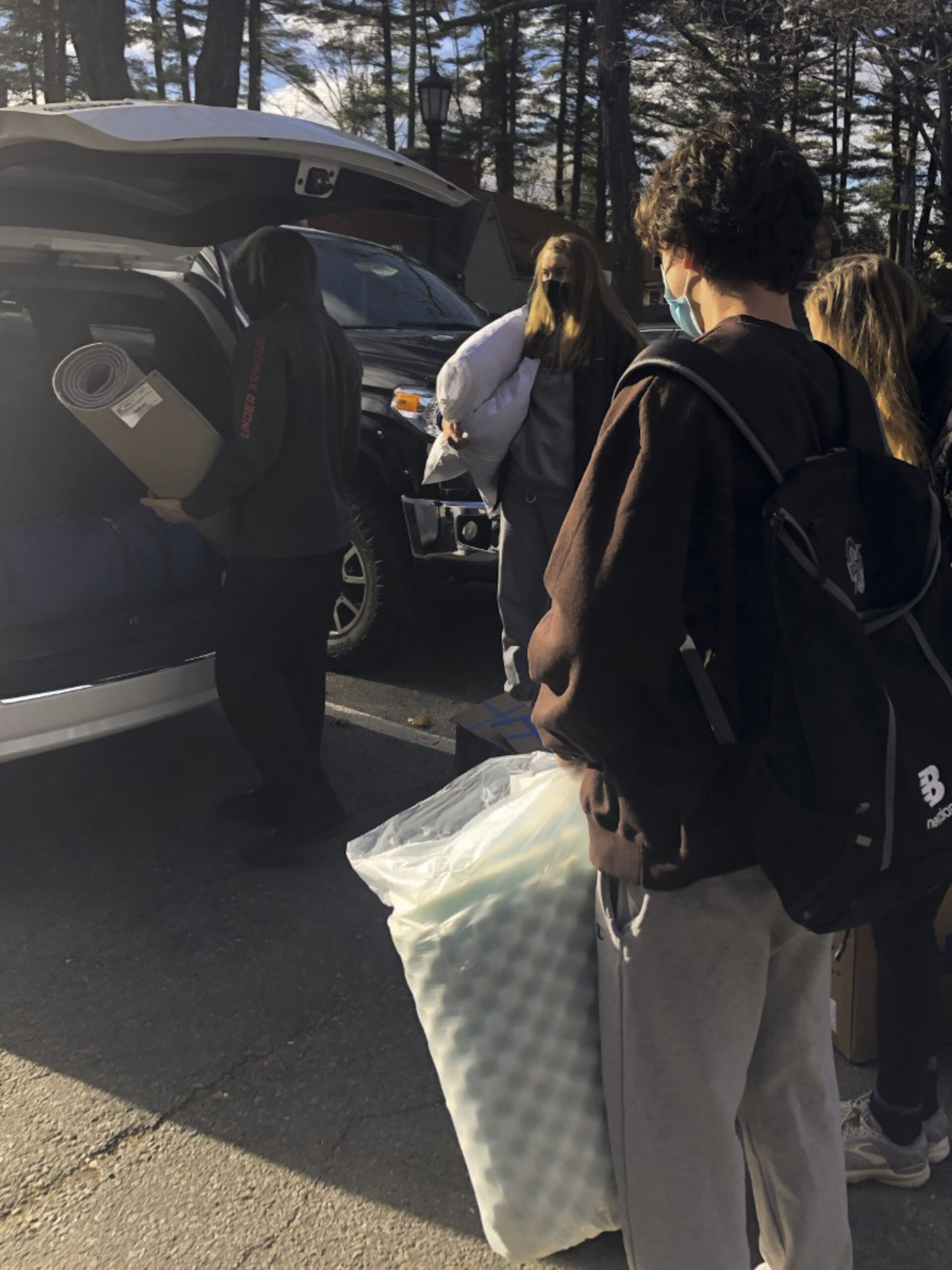On-campus students depart early as COVID-19 cases rise at the College and in Maine
November 20, 2020
As COVID-19 cases surge nation-wide, the Bowdoin community has not been immune. Confronting rising cases of the virus on campus, the administration and on-campus students are evaluating steps forward as the Thanksgiving holiday approaches.
In a Microsoft Teams interview with the Orient, COVID-19 Resource Coordinator Mike Ranen said that he was not surprised about the recent positive cases on campus.
“If you look at the numbers in Maine, they are rising almost exponentially, so we understood that there was a chance that we would see some positives,” Ranen said. “And if you look around the NESCAC as a whole, even some of our peer schools that were like us and had very low cases, [and] every NESCAC school now has cases.”
Despite campus reporting four new cases over the past week—the number that was initially set as the threshold for transitioning to orange status—the College decided instead to maintain yellow status for the time being.
“There’s not a specific formula that we’re using,” Ranen said. “It really is holistic…. Looking at where the cases are on campus as well as the close contacts for both the students and the employees, and the fact that the last positive employee case was at Schiller—which is not on the main campus—we decided that as of now, we can stay in yellow. That could change at any time.”
Ranen also noted that students who are in quarantine—meaning they have been identified as close contacts of students who have tested positive—have been approved to leave campus before their two-week quarantine is complete per a change in the Maine CDC’s policy. However, Ranen clarified that the College is not telling these students to leave and is encouraging them to comply with public safety precautions.
“We recommend that all students complete their 14-day quarantine on campus,” Ranen said. “We are prepared to have them complete [it on] campus [and] we have dining set up to do it. For positive cases—our students in isolation—they’re not allowed to leave, they must complete their isolation on campus. For students who have the ability to quarantine somewhere else and can get there in a private vehicle, we’ve been allowing them to do that with giving them some guidance about how to travel [and] guidance about how to monitor their symptoms.”
 Carlton Steinberg
Carlton SteinbergMany students have chosen to depart campus earlier than the set departure date of Saturday, November 21, citing fears of exposure to the virus and identification as a close contact of an infected individual.
Caroline Landis ’24 departed campus for her home in Atlanta, Georgia on Sunday. She made the choice to leave only the day before, requiring a last-minute flight change and creating a sudden whirlwind of packing and goodbyes.
“It was kind of sudden, but at the same time, I thought with the way the cases were coming, our last week would probably be pretty restricted, and so I thought it was probably best just to have the chance to get out,” Landis said in a Zoom interview with the Orient.
Students who left early were required to submit a form to the registrar signifying their intent to transition to remote learning and to receive a negative test result before their departure.
“We’ve been working individually with students to figure out when they’re leaving, like what date their last test should be, to make sure they have a negative test as close to their departure as possible,” Ranen said. “So we do have a large number of students who are changing their test days this week to make sure they have a negative result shortly before they depart.”
Sydney Starks ’24 said she had initially planned to leave on Saturday, but she rescheduled her flight to depart on Tuesday instead.
“I never got [COVID-19], I’m still negative, but I was just worried about it and also I just couldn’t get contact traced and get into [quarantine] because I might have had to possibly miss Thanksgiving,” Starks said in a Zoom interview with the Orient.
Starks said that she noticed a general trend of students on campus also leaving early.
“I feel like people are either gone or trying to leave,” Starks said. “They’re staying in their rooms because they’re worried people are going to get [COVID-19] … I’m glad I left.”
Connor Fitch ’21, a proctor in Chamberlain Hall, said he had noticed some of his residents leaving early, but he did not know whether it was because of the rising number of COVID-19 cases on campus. Still, he said that campus felt different given that people are mindful of a heightened risk of infection and are also wanting to be more careful about potential exposure before heading home to their families.
“Outside of stuff specific to my job, I’ve been just kind of hunkering down because there’s the obvious personal thing of I would like to be home with my family, and then also I would like to not bring anything with me inadvertently home to my family,” Fitch said in a Zoom interview with the Orient. “I think that was reflected in people’s sentiments, at least in the spaces I’m around.”

Comments
Before submitting a comment, please review our comment policy. Some key points from the policy: